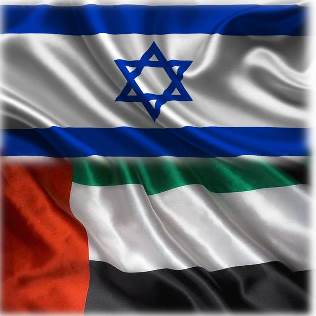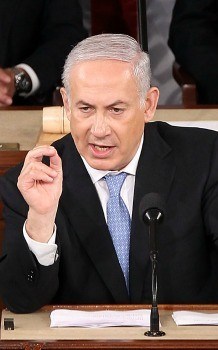
Israel

Israel’s mission in UAE: good news or bad
ANT KATZ
Later the same day, however, a senior UAE official was quick to announce that Israel’s new office in Abu Dhabi did not signify any change in her government’s attitude. Maryam Al Falasi, director of communications at the UAE Ministry of Foreign Affairs, issued a statement on the same day, saying that this did not “represent any change in the position of the UAE or its relations with Israel”, Gulf News reported.
So, which is it?
“Discussions about an official Israeli presence in Abu Dhabi have been conducted in great secrecy for several years now,” said Haaretz’ on breaking the story.
At the founding conference of IRENA, in January 2009, Israel unexpectedly supported the UAE (instead of Germany) as the world headquarters of the organisation, a senior Israeli foreign affairs official said. One of the conditions involved in Israel’s support for the UAE was that no restrictions would be imposed on Israeli participation in the activities of IRENA in Abu Dhabi, regardless of political realities, and that Israel would be permitted to open a diplomatic mission there that would be accredited to the agency.

RIGHT: Aerial view of the United Arab Emirates’ capital, Abu Dhabi. Credit: NASA
Dr Dore Gold, director-general of Israel’s Foreign Ministry, had visited Abu Dhabi earlier in the week to participate in the IRENA Council’s biannual meeting. But, say the media pundits in hindsight, the main purpose of Gold’s trip seems to have been the finalisation of the opening of the mission. During his three-day visit, Gold met with IRENA director-general Adnan Amin and discussed the opening of the mission with him.
The news of this opening came just as US Secretary of State John Kerry left the region after a frustrating day of talks with Israeli Prime Minister Benjamin Netanyahu and Palestinian Authority President Mahmoud Abbas, which concluded with the failure to achieve any diplomatic progress.
Writing in a Jerusalem Post opinion piece last week, Abe Silberstein said that, while “on its face, this is excellent news for Israel”, lurking close behind “is a dangerous potential for complacency”. He reasoned that this was just the latest sign that Israel’s relations with the Gulf States are improving, following as it had, shortly after the conclusion of the nuclear agreement between the P5+1 and Iran.
Will Israeli delegation be restricted?
Israeli diplomat Rami Hatan has been appointed to head the Israeli delegation, and is expected to depart for Abu Dhabi in the near future. The office space for the new mission has already been found, according to Israeli media reports, and is undergoing final preparations before the formal opening.
The UAE, however, seems set on putting out the message that this is not the case.
So, is Israel’s mission in Abu Dhabi a major breakthrough in Israeli relations with the Arab world? And will it be a diplomatic mission?
Only time will tell. However, what is clear is that the events in the Middle East over the past five years have absolutely countered the perception that the Israeli-Palestinian conflict is the root cause of instability in the region. Syria, Iran, ISIS, how do any of these issues play into that long-espoused narrative?
Add to that mix the common regional concerns between Israel and the Gulf States over the Iran nuclear deal, add the (real or perceived) decline of America’s interest and leadership in the region, and it explains why ties between Israel and the Gulf States might be warming.
If it is, in fact, a “diplomatic mission” – even a de facto one – it could well signal a major breakthrough in Israeli relations with the Arab world. If, however, the UAE sticks to its guns on the “no diplomacy” issue, it could be counter-productive, put a damper on Israeli-Arab relations (despite the common opportunities and threats they face) and play into the Palestinian narrative.
Relative importance of Palestinian issue
The opening of the mission may also mean that the leaders of the Gulf Arab States view the Palestinian issue as one of declining importance in the light of the huge geopolitical challenges facing them. Declining oil prices, the US retreat from the region, and the threat of Iran and terror groups like ISIS may have changed the calculus of Arab Gulf leaders.
“It is an indication that the Palestinian issue is not predominant in Gulf assessments – although it is still important for Gulf populations,” Simon Henderson, director of the Gulf and Energy Policy Programme at the Washington Institute for Near East Policy think tank, said last week. He called the opening of Israel’s Abu Dhabi office as “not major but significant, and more significant than is being generally reported”.
A report by Sky News in October suggested that Bahrain and other members of the Gulf Co-operation Council (GCC) are in negotiations to buy the Israeli-developed Iron Dome anti-missile system to defend against “a growing arsenal of Iranian missiles”.
“The Israelis have their small Iron Dome. We’ll have a much bigger one in the GCC,” Khalid bin Mohammed al Khalifa, Bahrain’s foreign minister, said during a visit to London in October.
Israeli PM Benjamin Netanyahu has made no secret of Israel’s desire to work more closely with Sunni Arab states like Saudi Arabia, Egypt, Jordan, and the UAE. Israel already works very closely with Egypt and Jordan on military and security matters and economic issues.
At the same time, Saudi Arabia has long promoted the Arab Peace Initiative, which was first proposed in 2002, as a means to normalise relations between the entire Arab world and Israel in exchange for Israel’s complete withdrawal back to its pre-1967 lines.
Over the past several years, there have been numerous reports of Israel co-operating with Saudi Arabia on the Iran nuclear threat, including reports that Israeli aircraft could use Saudi airspace to launch attacks on Iran’s nuclear programme.
‘Working closely with Arab peace partners’
“Israel is working closely with our Arab peace partners to address our common security challenges from Iran and also the security challenges from ISIS and from others,” Netanyahu said in his address to the United Nations General Assembly in late September.

LEFT: File Picture of Israeli
Prime Minister Netanyahu
“Common dangers are clearly bringing Israel and its Arab neighbours closer,” Netanyahu added.
At the same time, during an event at the Council on Foreign Relations think tank, Dore Gold, not yet director-general of the Israeli Foreign Ministry, and Anwar Eshki, a former Saudi general and ambassador to the US, revealed that they had been covertly conducting diplomatic talks to discuss Iran over a series of five meetings since 2014.
Most analysts agree that the geopolitical situation favours Israel’s being able to have closer relations with Arab states.
“Due to America’s gradual withdrawal from its obligations in the region, Saudi Arabia, Jordan, Egypt, and the UAE now need Israel at least as much, if not more, than Israel needs them,” Haaretz columnist Israel Harel recently wrote. “Israel’s interests in the region are not dependent on energy sources or on exploiting competition between the superpowers. They are existential and immutable,” he added. “Israel will be a loyal ally to those countries who need it.”
But will anyone break Arab ranks?
The relationship between Israel and Arab states, including the UAE, will likely still be limited in the near future by concerns among the Arab nations’ populations (previously stoked by the same states’ heads) about Israel.
“Ordinary people in the Gulf would disapprove [of relations with Israel] and the Gulf leaderships cannot ignore local thinking,” the Washington Institute’s Henderson says.
Henderson believes that going forward, what might help Israeli-Arab ties would be a gesture along the lines of former Egyptian President Anwar Sadat’s visit to Jerusalem, which later led to the Camp David Accords and the 1979 Egypt-Israel peace treaty.
“Perhaps a visit by a significant figure, either to Israel, or an Israeli to the Gulf,” said Henderson, could help bring relations to the next level.




